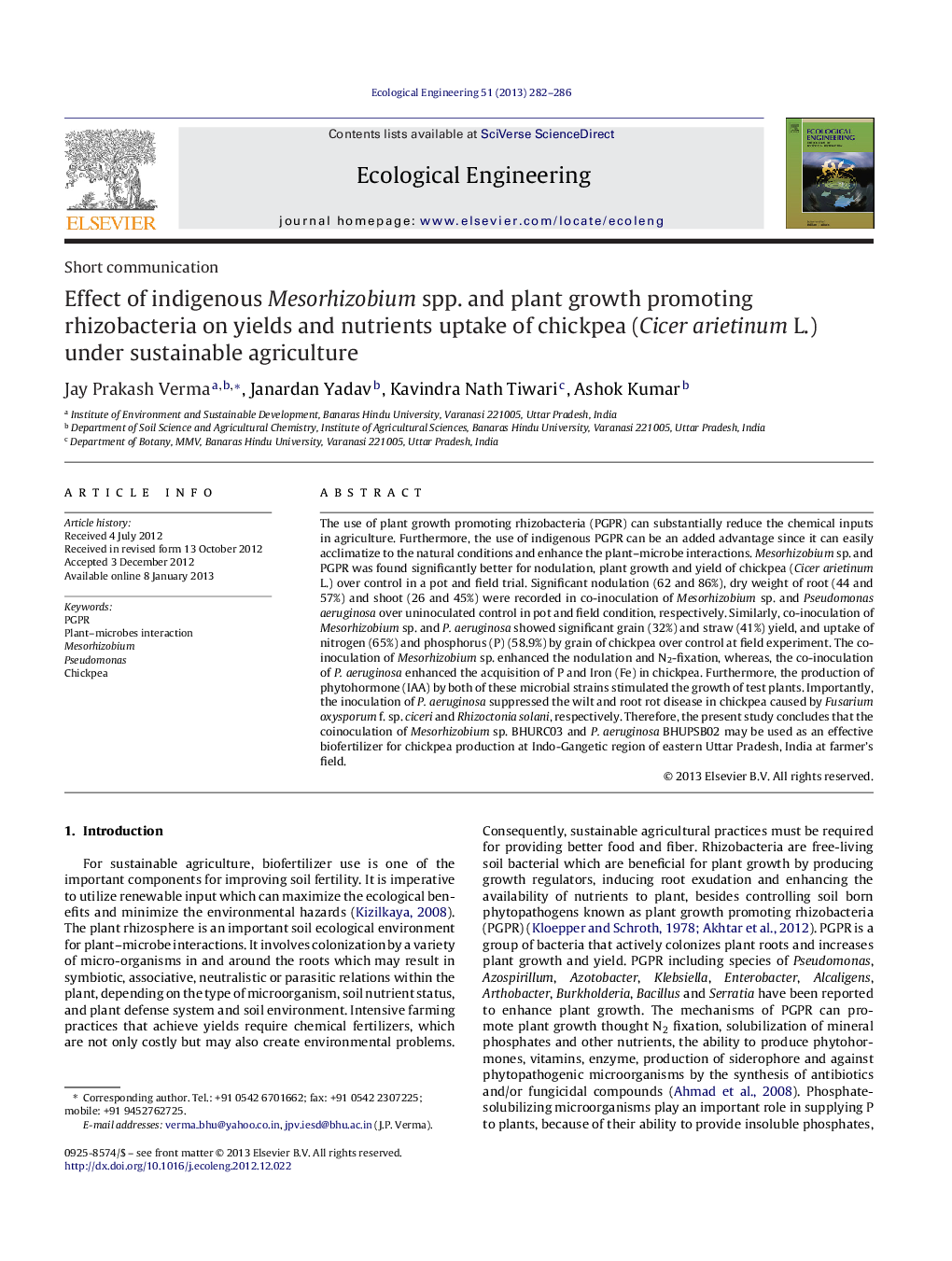| Article ID | Journal | Published Year | Pages | File Type |
|---|---|---|---|---|
| 4389855 | Ecological Engineering | 2013 | 5 Pages |
The use of plant growth promoting rhizobacteria (PGPR) can substantially reduce the chemical inputs in agriculture. Furthermore, the use of indigenous PGPR can be an added advantage since it can easily acclimatize to the natural conditions and enhance the plant–microbe interactions. Mesorhizobium sp. and PGPR was found significantly better for nodulation, plant growth and yield of chickpea (Cicer arietinum L.) over control in a pot and field trial. Significant nodulation (62 and 86%), dry weight of root (44 and 57%) and shoot (26 and 45%) were recorded in co-inoculation of Mesorhizobium sp. and Pseudomonas aeruginosa over uninoculated control in pot and field condition, respectively. Similarly, co-inoculation of Mesorhizobium sp. and P. aeruginosa showed significant grain (32%) and straw (41%) yield, and uptake of nitrogen (65%) and phosphorus (P) (58.9%) by grain of chickpea over control at field experiment. The co-inoculation of Mesorhizobium sp. enhanced the nodulation and N2-fixation, whereas, the co-inoculation of P. aeruginosa enhanced the acquisition of P and Iron (Fe) in chickpea. Furthermore, the production of phytohormone (IAA) by both of these microbial strains stimulated the growth of test plants. Importantly, the inoculation of P. aeruginosa suppressed the wilt and root rot disease in chickpea caused by Fusarium oxysporum f. sp. ciceri and Rhizoctonia solani, respectively. Therefore, the present study concludes that the coinoculation of Mesorhizobium sp. BHURC03 and P. aeruginosa BHUPSB02 may be used as an effective biofertilizer for chickpea production at Indo-Gangetic region of eastern Uttar Pradesh, India at farmer's field.
► Mesorhizobium sp. and PGPR have found significantly enhancement in chickpea production. ► Mesorhizobium sp. and P. aeruginosa may be used as an effective biofertilizer for chickpea. ► These findings have been evaluated under pot and field experiment. ► These findings have been reported at Indo-Gangetic plain of eastern Uttar Pradesh, India. ► Use of PGPR for reducing chemical inputs in agriculture is an important issue.
